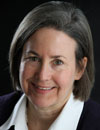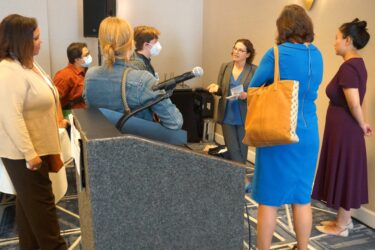The Association of Health Care Journalists has launched an effort to improve reporters’ access to the data and information released at medical society meetings.
These meetings are often the world’s first look at research findings and advances in medical science. But the policies of some medical societies can make it hard for reporters to do their jobs well.

At these meetings, reporters have to collect and digest complicated data presented in fast-moving talks. To ensure accuracy, reporters typically want to take pictures of slides and posters and tape-record presentations. At many meetings, this is not a problem. But some associations bar or severely restrict recording and photography.
The volunteer members of AHCJ’s Right to Know Committee sent letters to 10 organizations that have restrictions on recording or photographing presentations at medical meetings. The letters seek to open a dialog about these policies in the hope of working to improve them. These 10 societies are the first of dozens the committee intends to approach.
“We understand that medical societies have legitimate concerns about possible inappropriate commercial use of presentations, or disruptions from flashbulbs or bulky equipment,” said Felice J. Freyer, chair of the Right to Know Committee. “But many societies have found other ways to address these issues without barring journalists from documenting the presentations. Clearly, there are workable alternatives to the blanket restrictions on recording and photography.”
The Right to Know Committee researched the policies of the 87 largest medical meetings and found that 36 (41 percent) have minimal or no restrictions and 38 (44 percent) have restrictions. (The committee was unable to determine the policies of 13.)
“AHCJ members are just trying to get it right,” Freyer said. “We’re confident that medical societies share our desire for accurate coverage, and we hope to collaborate with them to find solutions that work for everyone.”
Freyer noted that the 10 letters were sent on Tuesday, and by Wednesday three organizations had already responded, expressing a willingness to consider AHCJ’s concerns.








